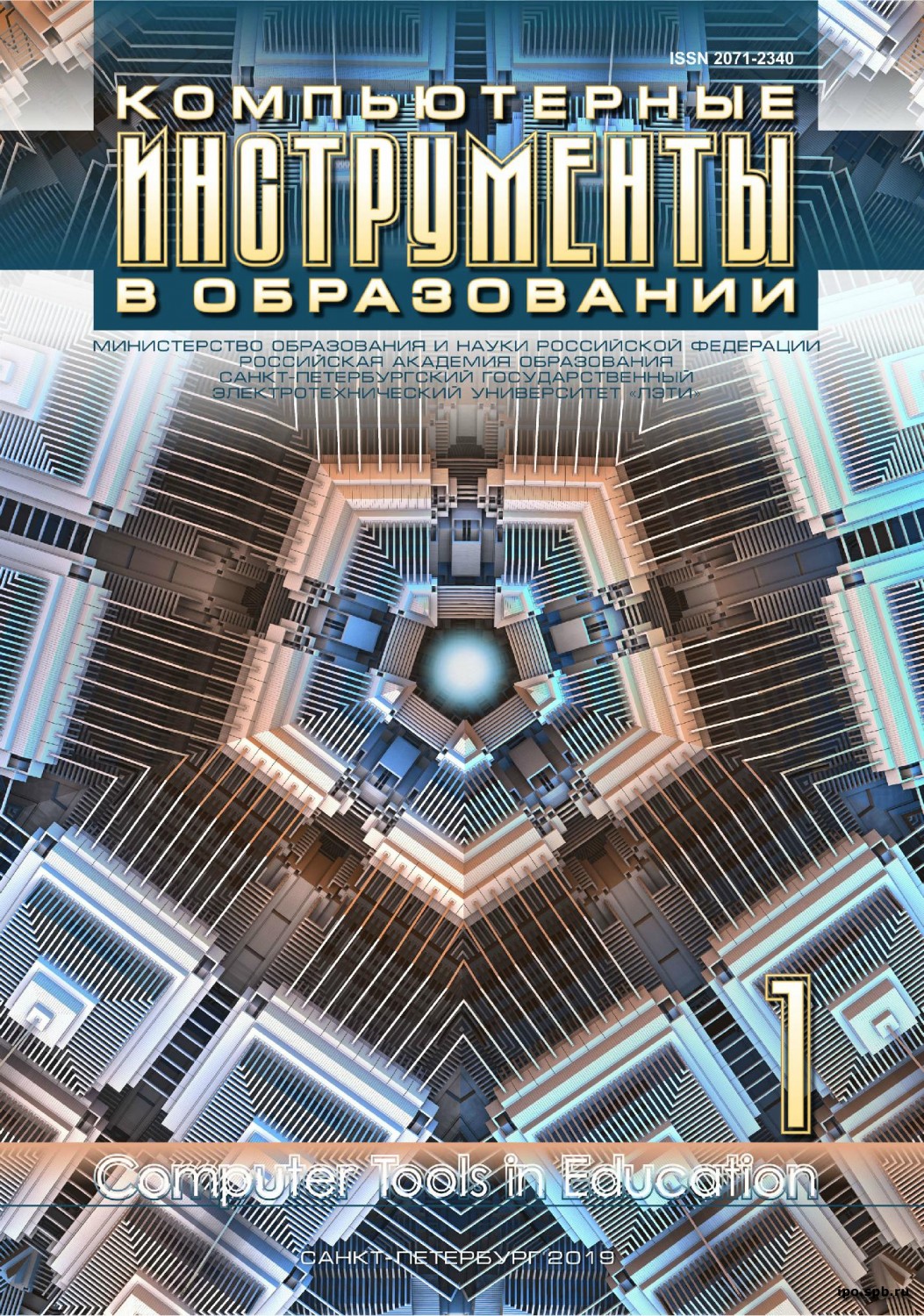Digital Learning Platform Services
Abstract
This paper analyzes digital technologies in the modern educational process, offers training and control services, formed with the help of the Learning Management System (LMS), which allows one to organize an active, creative and social training of modern specialists, in accordance with the program of “Digital economy of the Russian Federation”. ”. The paper analyzes modern learning technologies and existing services of digital platforms. The capabilities of digital platforms are demonstrated on the basis of LMS Blackboard. Training and control measures are offered which will allow forming and evaluating the specialists’ competencies. The authors have developed a model “Business game” that is implemented based on the LMS Blackboard and with the help of software complex “SMARTlabwork”. The results of the analysis of parameters of quality of performance of various training and control actions received by means of methods of the intellectual analysis (Data Mining) are presented. Essential signs of control measures and competence indicators are recommended.
References
A. K. Gorshenin, “Development of Services of Digital Platforms to Overcome Nonfinancial Barriers,” Informatics and Applications, Vol. 12, no. 4, pp. 106–112, 2018 (in Russian); doi: 10.14357/19922264180415
A. I. Govorov, M. M. Govorova, E. V. Slizen, J. O. Valitova, and S. E. Ivanov, “Method for Constructing an Individual Educational Route By Completing Tasks for Training Professional Skills in Compiling SQL-querie,” Computer tools in education, no. 4, pp. 45–62, 2018 (in Russian); doi:10.32603/2071-2340-4-45-62
A. V. Suvorova, K. R. Smirnova, E. A. Budin, T. V. Tulupyeva, A. L. Tulupyev, and M. V. Abramov, “Research Project as a Tool for Teaching Text Analysis Methods: Predicting the Post Class in the Social Network,” Computer tools in education, no. 3, pp. 49–64, 2018 (in Russian).
V. Tikhomirov, N. Dneprovskaya, and E. Yankovskaya, “Three dimensions of smart education,” Smart Innovation, Systems and Technologies, Vol. 41, pp. 47–56, 2015 (in Russian).
A. A. Beloglazov, L. B. Beloglazova, I. A. Beloglazova, O. L. Maltsev, E.V. Trubacheev, S. A. Nikiforova, and V.V. Popenko, “Educational Technologies of Online-Learning: Analysis of Mass Open Online Courses of Russian Universities,” Vestnik moskovskogo gorodckogo pedagogicheckogo universiteta, no. 4, pp. 50–57, 2018 (in Russian); doi: 10.25688/2072-9014.2018.46.4.05
A. Gavrilov and Y. Novitskaya, “Umnaya uchebnaya laboratoriya dlya avtomatizatsii provedeniya laboratornykh rabot” [“Smart School Laboratory for Automation of Laboratory Works”], Computer tools in education, no. 6, pp. 20–32, 2016.
M. F. Paulsen, “Experiences with Learning Management Systems in 113 European institutions,” Educ. Technol. Soc., Vol. 6, Iss. 4, pp. 134–148, 2003.
V. A. Ryzhov, Y. B. Senichenkov, Y. V. Shornikov, and D. N. Dostovalov, “Kompyuternoe modelirovanie slozhnykh dinamicheskikh sistem. Otsenka potrebnostei v spetsialistakh” [A Program to Determine the Asymptotic Effciency of Convolutional Codes], Computer tools in education, no. 3, pp. 51–60, 2017 (in Russian).
L. A. Aleksandrova, E. R. Galimov, and S. S. Pirozhenko, “Problematic aspects of evaluation of competence-oriented training,” Scientific notes of the Institute of Social and Humanitarian Knowledge, Vol.1(15), Kazan: UNIVERSUM, pp. 24–29, 2017.
L. A. Aleksandrova, E. R. Galimov, and M. S. Tyapkin, “Labor expenses E-learning,” Scientific notes of the Institute of Social and Humanitarian Knowledge, Vol. 1(14), Kazan: UNIVERSUM, pp. 32–37, 2016.
Ben Gilad, “Neither a War nor a Game,” Competitive Intelligence Magazine, Vol. 9 (6), Nov.-Dec. 2006.
L. A. Aleksandrova, E. R. Galimov, Ali Dhahir Mohsin Alramadhan, “Electronic training: problems and solution,” Fundamental and applied scientific research, Ufa, pp. 136–140, April. 2015.

This work is licensed under a Creative Commons Attribution 4.0 International License.







